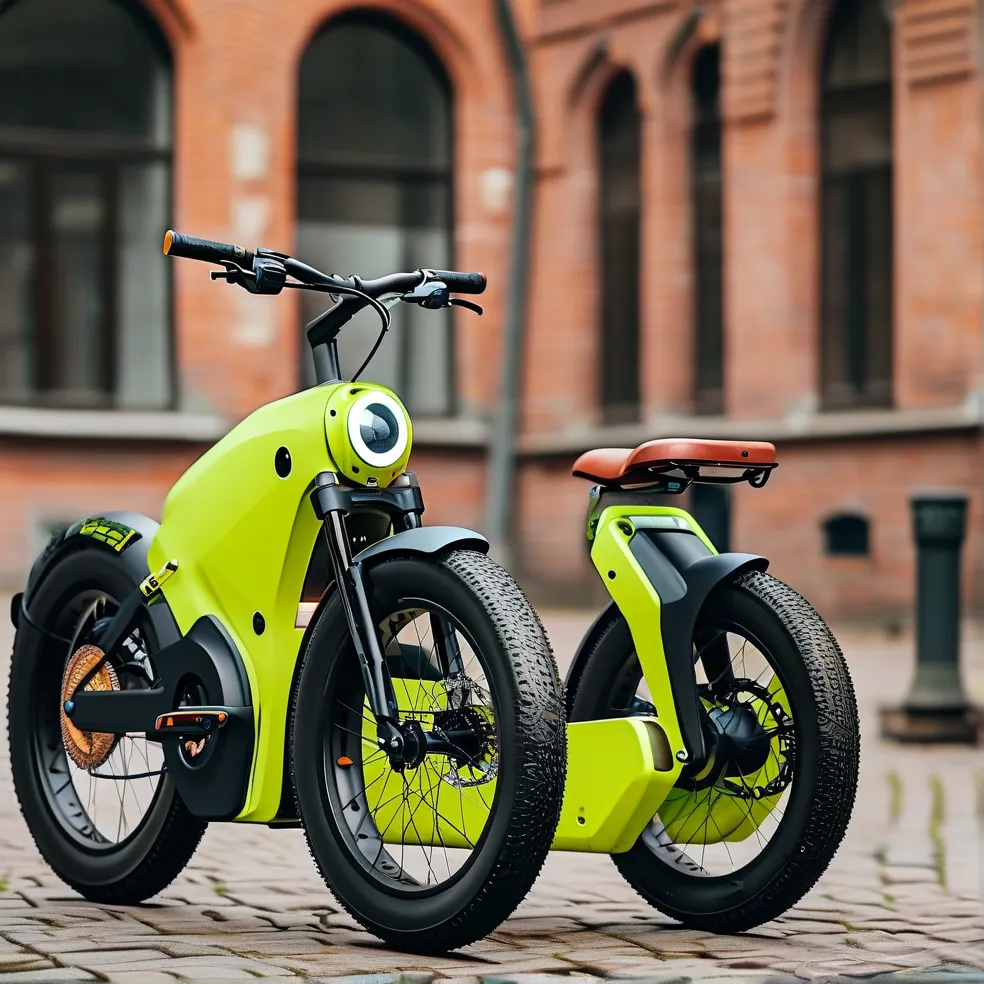As urban landscapes grow denser and environmental regulations tighten, heavy-duty electric cargobikes are emerging as transformative solutions for both family logistics and commercial operations. By 2025, industry analysts project a 34% annual growth in the global e-cargobike market (BloombergNEF), driven by advances in battery efficiency, cargo capacity innovations, and shifting consumer priorities toward sustainable mobility.
Family Transport Reimagined: Space Meets Sustainability
Modern families increasingly prioritize vehicles that blend practicality with eco-conscious design. Leading models like the Riese & Müller Packster 70 now offer:
– 400+ lb payload capacities for school runs, grocery hauls, or sports equipment
– Integrated child safety systems with ISO-certified seating
– Weatherproof cargo areas with tamper-proof locking mechanisms
A 2024 University of Amsterdam study found families using e-cargobikes reduced their car usage by 62%, saving an average of $3,200 annually on fuel and maintenance. Manufacturers are responding with modular designs – Thule’s new convertible rain canopy system, for instance, transforms cargo space into weather-protected play areas within seconds.
Commercial Operators Shift Gears: Last-Mile Logistics Upgraded
Urban delivery fleets face mounting pressure to meet emissions targets while maintaining profitability. DHL’s pilot program in Berlin demonstrated that electric cargobikes reduced last-mile delivery costs by 28% compared to traditional vans in high-density areas. Key 2025 innovations include:
– AI-Powered Route Optimization: Bosch’s Smart System dynamically adjusts routes based on real-time traffic, payload weight, and battery levels
– Swappable Battery Networks: ChargeUp’s citywide stations enable continuous operation for delivery fleets
– Telematics Integration: Cloud-connected diagnostics predict maintenance needs with 92% accuracy (Gartner)
Battery Breakthroughs: Doubling Range, Halving Charge Times
The 2025 model year brings solid-state batteries to mainstream cargobikes, offering:
– 120-mile ranges per charge (up from 2020’s 45-mile average)
– 15-minute fast-charging capabilities at public stations
– 40% lighter power units through graphene composite casings
Manufacturers like Tern and Urban Arrow partner with QuantumScape to implement these technologies while maintaining UL-certified safety standards. Independent testing by Cycle Volta confirms new batteries retain 90% capacity after 1,500 charge cycles – triple the lifespan of earlier lithium-ion models.
Regulatory Tailwinds Accelerate Adoption
Government incentives are reshaping urban transport economics:
1. EU’s revised Eurovignette Directive offers tax rebates for businesses replacing >20% of delivery vehicles with e-cargobikes
2. California’s Clean Mobility Program provides $7,500 purchase credits for family models meeting CARB specifications
3. London exempts commercial e-cargobikes from congestion charges through at least 2027
Industry leader Carla Cargo reports a 300% surge in municipal fleet inquiries since these policies took effect – a trend mirrored in Singapore’s recent $22M national micro-mobility initiative.
Safety Systems Matching Automotive Standards
Advanced driver-assist technologies now bridge the gap between bicycles and automotive safety:
– Adaptive headlights adjusting to speed and road conditions (Osram Continental Joint Venture)
– Collision avoidance sensors with automatic braking (NVIDIA DRIVE integration)
– GPS-enabled anti-theft systems triggering immobilizers and location tracking
Insurance data from Allianz reveals these features have reduced claim frequency by 41% compared to traditional cargo bikes since 2022 implementation.
Customization Drives Market Segmentation
Top manufacturers now offer application-specific configurations:
| Use Case | Key Features | Leading Model |
|———-|————–|—————|
| Family | Convertible seating, UV-protected canopies | Babboe City-E Pro |
| Food Delivery | Insulated compartments, tablet mounts | Rad Power Bikes RadWagon |
| Construction | Heavy-duty racks, tool stabilization | Carla Cargo Xpress HD |
Specialized accessories markets are projected to reach $1.2B globally by Q3 2025 (Grand View Research), reflecting demand for bespoke solutions across industries.
As cities implement low-emission zones and consumers prioritize operational efficiency over vehicle ownership, heavy-duty electric cargobikes stand positioned to redefine urban mobility paradigms. With major automakers like Ford and Volkswagen entering the space through acquisitions (Stromer and Riese & Müller respectively), the sector shows no signs of slowing – blending automotive-grade technology with bicycle agility to solve pressing transportation challenges.
